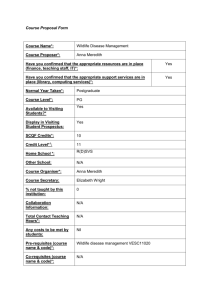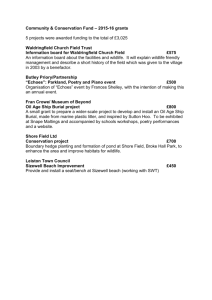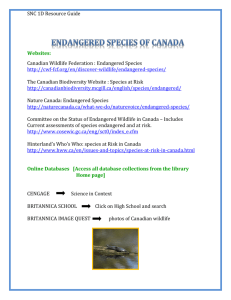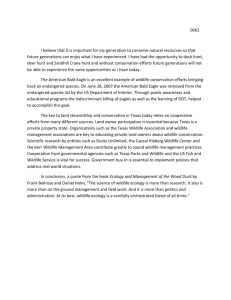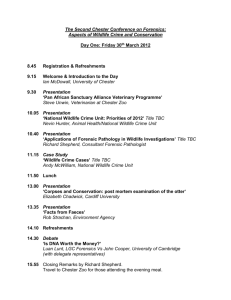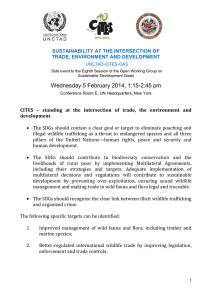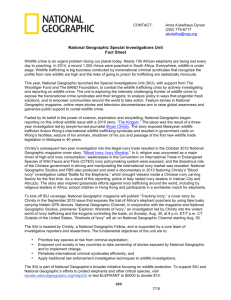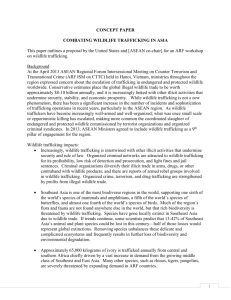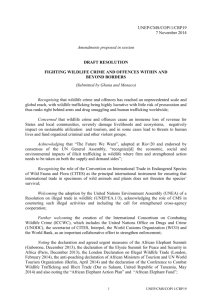File
advertisement
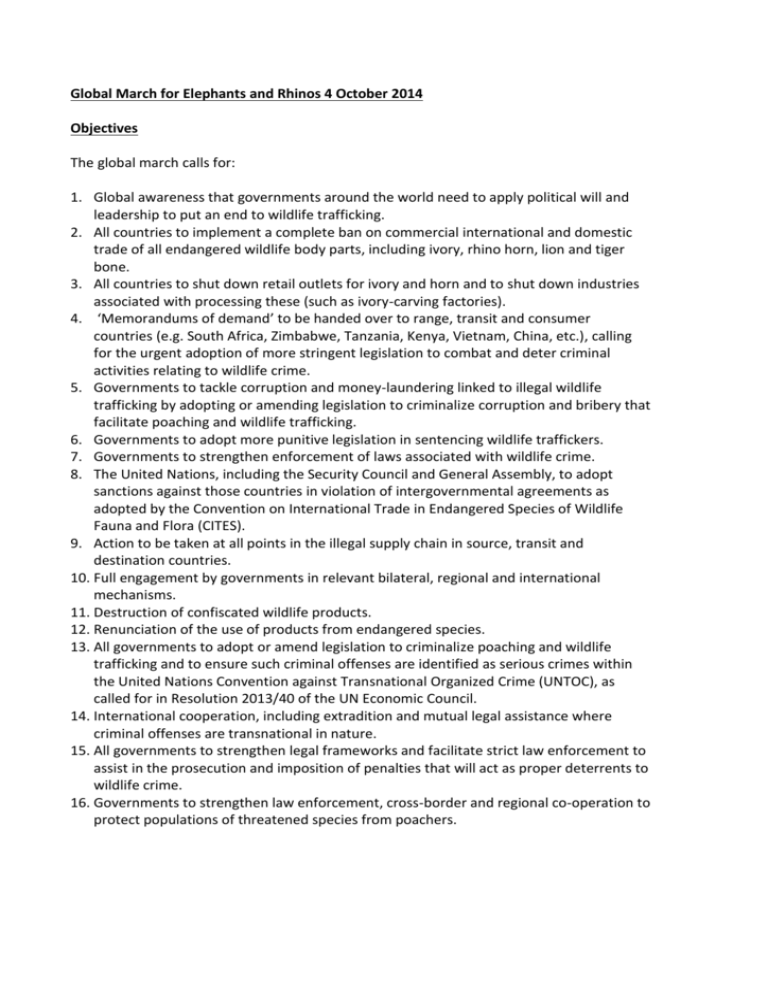
Global March for Elephants and Rhinos 4 October 2014 Objectives The global march calls for: 1. Global awareness that governments around the world need to apply political will and leadership to put an end to wildlife trafficking. 2. All countries to implement a complete ban on commercial international and domestic trade of all endangered wildlife body parts, including ivory, rhino horn, lion and tiger bone. 3. All countries to shut down retail outlets for ivory and horn and to shut down industries associated with processing these (such as ivory-carving factories). 4. ‘Memorandums of demand’ to be handed over to range, transit and consumer countries (e.g. South Africa, Zimbabwe, Tanzania, Kenya, Vietnam, China, etc.), calling for the urgent adoption of more stringent legislation to combat and deter criminal activities relating to wildlife crime. 5. Governments to tackle corruption and money-laundering linked to illegal wildlife trafficking by adopting or amending legislation to criminalize corruption and bribery that facilitate poaching and wildlife trafficking. 6. Governments to adopt more punitive legislation in sentencing wildlife traffickers. 7. Governments to strengthen enforcement of laws associated with wildlife crime. 8. The United Nations, including the Security Council and General Assembly, to adopt sanctions against those countries in violation of intergovernmental agreements as adopted by the Convention on International Trade in Endangered Species of Wildlife Fauna and Flora (CITES). 9. Action to be taken at all points in the illegal supply chain in source, transit and destination countries. 10. Full engagement by governments in relevant bilateral, regional and international mechanisms. 11. Destruction of confiscated wildlife products. 12. Renunciation of the use of products from endangered species. 13. All governments to adopt or amend legislation to criminalize poaching and wildlife trafficking and to ensure such criminal offenses are identified as serious crimes within the United Nations Convention against Transnational Organized Crime (UNTOC), as called for in Resolution 2013/40 of the UN Economic Council. 14. International cooperation, including extradition and mutual legal assistance where criminal offenses are transnational in nature. 15. All governments to strengthen legal frameworks and facilitate strict law enforcement to assist in the prosecution and imposition of penalties that will act as proper deterrents to wildlife crime. 16. Governments to strengthen law enforcement, cross-border and regional co-operation to protect populations of threatened species from poachers.


